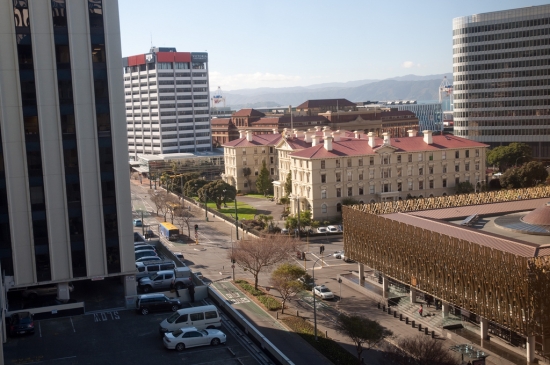The commercial property market in New Zealand fell in the last three months of 2012, with total returns falling by 0.6 per cent. According to figures released by the Property Council/IPD NZ All Property Index, the total average (capital plus income) annual return across industrial, retail and office sectors was 8.8 per cent in the fourth quarter of last year, compared with 9.4 per cent in the previous three months.

Growth is expected in Wellington’s office market
The reason for the decline appears to be linked to the sharp drop in returns from retail premises, which went down to 10.5 per cent in the last quarter of the year from 13.1 per cent in the September quarter.
Total returns from office properties increase by 0.3 per cent to 7.5 per cent and industrial property values went up by 0.6 per cent to 10.9 per cent over the same period.
The NZ market is still outperforming commercial property markets overseas. The modest drop in total returns in the fourth quarter has come after more than three years of continued growth. In the United States and Australia, total returns have declined over four full quarters.
IPD’s Anthony De Francesco has said that the lower returns in international markets reflect soft demand.
In a recent statement, he said: “This is no surprise given the weakness in key macro-economic indicators such as employment growth, retail trade and house approvals.”
De Francesco went on to point out that growing investor interest in commercial property could see yields squeezed on good quality assets.
As the market continues to improve, property experts are warning that owners of earthquake-prone buildings will miss out on the benefits of the improving property market. In a recent statement Colliers International’s National Director of Research and Consulting, Alan McMahon stated that investors were focused on high-quality structurally secure buildings.
He explained that the pendulum is swinging back in the landlords’ favor, except for earthquake-prone buildings. Rents for top end buildings will increase, according to McMahon.
“Overall the situation is pretty good. Rents in Auckland’s CBD and metro areas are improving, and we are predicting growth in the industrial market along with Wellington’s prime office market,” he said.
McMahon went on to mention that he realized the majority of owners of buildings constructed before 1976 were people who may not have the means to bring them up to the standards required to make them earthquake resistant.
Previous Post
Advice Sector Offices Face Closure